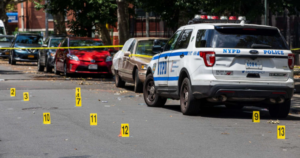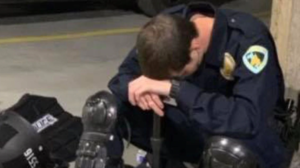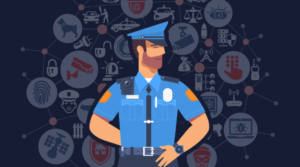“Let’s defund the police.” Let us think about what that means. Are we going to fully clean the slate and start over? Is that going to happen in one fell swoop across the US or one-by-one in each community based on their own needs assessments? Neither. Let’s be honest. Let’s be realistic. But an interesting dialogue took place when NPR’s Leah Donnella recently interviewed Alex S. Vitale, author of the 2017 Book, The End of Policing.
In the book, and repeated in the interview, Vitale suggests that police are asked to do too much. They are addressing social problems outside their initial scope of work. Vitale mentions homelessness, mental illness, youth violence and other areas he has recent memory of police associating with. Vitale called on the country to reflect on “why we turned these social problems over to the police to manage”.
The odd thing is, in the NYPD, as I stood at the podium every 28 days at Compstat from 1995 to 2004, I wondered the same exact thing. I pondered the massive accountability that was being put on our shoulders every month. I heard the same things Vitale notes… plus so much more. These tangential areas of responsibility included, but were not limited to: garbage collection, utilities (e.g. street lights), children protective services, prosecutions, drug treatment facilities and so many more city services. How does that make any sense? Well it’s easy: each one of those agencies and their responsibilities, if not addressed appropriately, ends up with a Part 1 crime report. And guess what? Starting in 1993, it was determined that every single crime report and victim was one too many and therefore the strategy shifted for law enforcement to coordinate and address these peripheral responsibilities as they contributed to crime prone conditions.
Imagine a streamlined police department that only addresses crime reports as they happen: felonies in progress and observed where action will take place and if the offender is not apprehended, the complaint is turned over to the detectives for investigation. Maybe they catch the offender, maybe they don’t. If there are multiple offenders, close the case with the first arrest and let the outstanding perpetrators go free. Officers will let open air narcotics markets flourish. Productivity goals for arrests, summons and other activity will not be measured. All the police would be required to do is answer the radio, dispose of the job appropriately and take action when something serious occurs in their observance. Compstat and police accountability programs can go away with no coordination with the other city agencies.
I don’t have to imagine it. I lived it from 1986 (my rookie year as a police officer) to 1993, when NYC finally said they had enough. There were over 2200 murders in a single year and crime was 80% higher than it is today.
My message to pandering politicians: be careful what you ask for, you may just get it. The police in this country have saved the communities they have served for the last 27 years. Going back would be insane.





